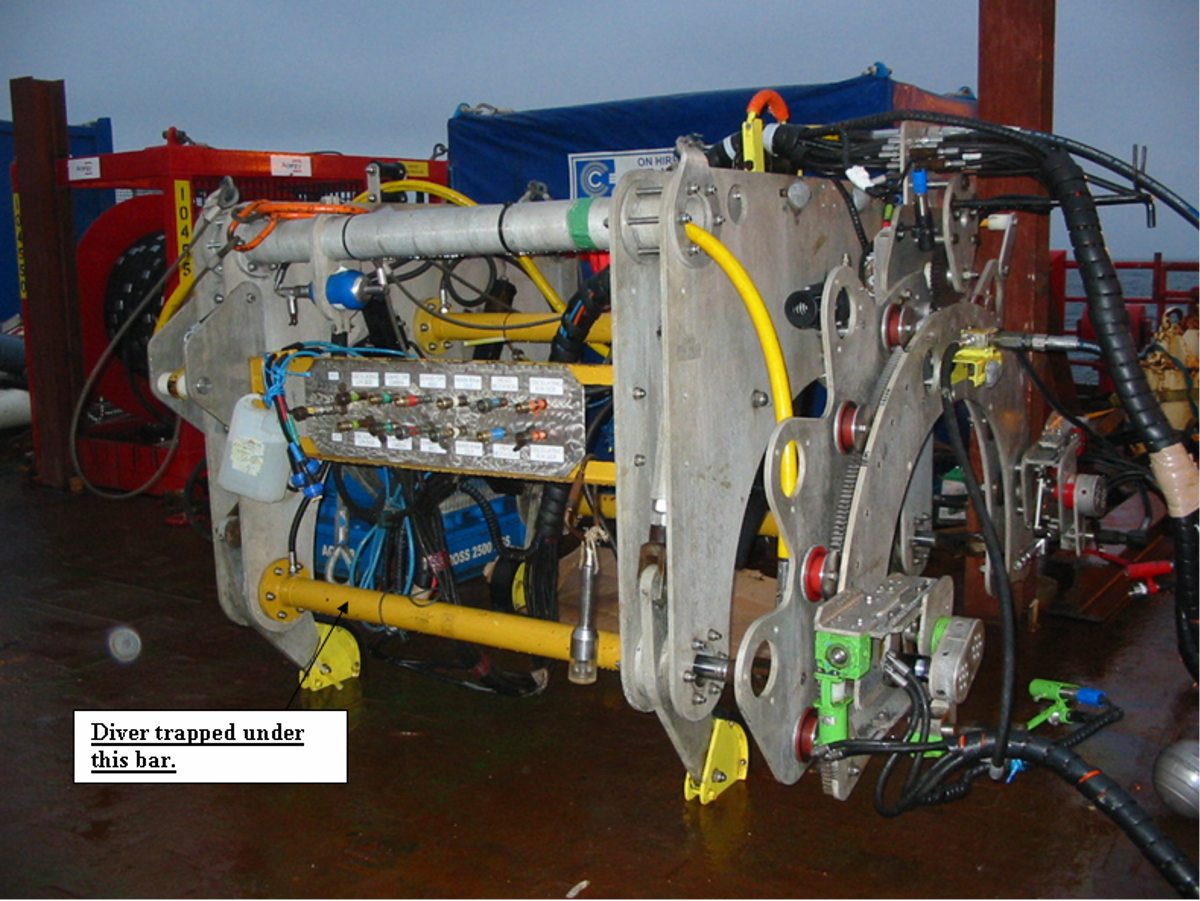Diver entrapment
- Safety Flash
- Published on 5 March 2009
- Generated on 12 July 2025
- IMCA SF 03/09
- 1 minute read
Jump to:
A Member has reported an incident wherein a diver became trapped by a water jet weight coat removal (WCR) tool, which he was attempting to secure to a twenty inch subsea pipeline.
What happened
The WCR tool had been landed directly onto the pipeline, rather than the seabed as had been originally planned. During operations to secure the WCR tool, the tool moved on the pipeline, trapping the diver.
An airbag was attached to the WCR tool and inflated to allow the WCR tool to rotate on the pipeline and free the diver.
The diver was freed without sustaining any injury.

What were the causes?
The resulting investigation identified the immediate cause of the incident being the failure to adhere to the prescribed task plan/operational risk assessment, with underlying causes identified as follows:
- The management of change procedure was not followed.
- There was a lack of understanding of possible hazards related to positioning of the WCR tool.
- The task plan was not followed.
- The risk was not fully assessed.
Lessons learnt
Members are reminded about the importance of:
- following procedures
- taking time out for safety, and
- following management of change procedures.
IMCA Safety Flashes summarise key safety matters and incidents, allowing lessons to be more easily learnt for the benefit of the entire offshore industry.
The effectiveness of the IMCA Safety Flash system depends on the industry sharing information and so avoiding repeat incidents. Incidents are classified according to IOGP's Life Saving Rules.
All information is anonymised or sanitised, as appropriate, and warnings for graphic content included where possible.
IMCA makes every effort to ensure both the accuracy and reliability of the information shared, but is not be liable for any guidance and/or recommendation and/or statement herein contained.
The information contained in this document does not fulfil or replace any individual's or Member's legal, regulatory or other duties or obligations in respect of their operations. Individuals and Members remain solely responsible for the safe, lawful and proper conduct of their operations.
Share your safety incidents with IMCA online. Sign-up to receive Safety Flashes straight to your email.